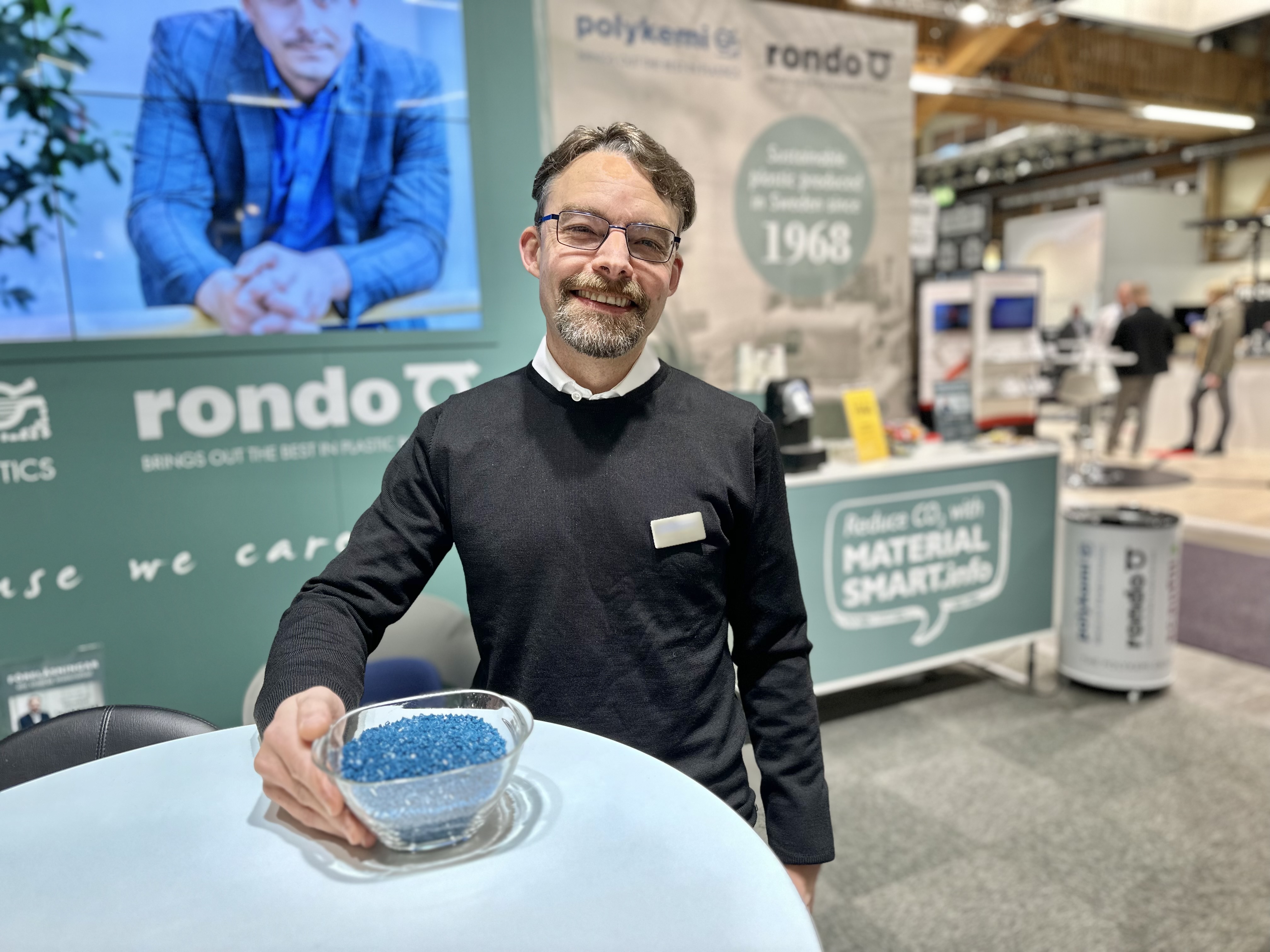The key to sustainability according to Polykemi – rethinking material choices

We have worked hard to raise this issue over the last couple of years. The raw materials are the single biggest influencing factor of the climate in a product. Between 60 and 80 percent of the climate footprint stems from the choice of material, says Henrik Palokangas, sustainability specialist for polymeric materials.
Reduced carbon footprint by 85 percent
During Elmia Subcontractor, Palokangas has raised the topic both from the exhibitor stage and in the Polykemi booth. Although it is widely known, and talked about, today that material selection is largely responsible for total CO2 emissions, it becomes extremely clear when you look at concrete numbers. Henrik explains further:
- For example, if you manufacture a product in fibreglass reinforced polyamide, PA6 GF30, you can reduce the climate impact by 61 percent by choosing recycled material.
If you choose instead to switch to fibreglass reinforced polypropylene, PP, which can have exactly the properties that the product requires, you will reduce the climate impact by 75 percent. If you can also choose recycled fibreglass-reinforced PP, the savings will reach 85 percent. With such a reduction of the raw material's climate load, which affects up to 80 percent of the final product's load, it has an impact.
- It is absolutely fantastic! The key is to dare to reconsider your material choices, says Henrik Palokangas.
Material smart calculator gives straight answers
The climate footprint is reduced when you choose recycled materials - but it also makes a big difference which polymer you choose. On Polykemi's own site, Materialsmart.se, there is a calculator that you can use to simulate how the climate impact is reduced if switched to a more climate-smart polymeric material. The calculator is based on third-party verified LCA data from Polykemi's facility in Ystad.
- Today we look at the climate footprint as a technical specification among other technical specifications. The goal for the calculations is to find a material that meets the technical requirements, while at the same time get as little climate impact as possible. We are experts in the materials, the customer is an expert in their product, and therefore it is important to have these conversations as early as possible, Henrik explains.
The fair enables fruitful meetings
Family-owned Polykemi was founded in 1968 and, in addition to its head office and facility in Ystad, also has two facilities in China and one in the USA. With approximately 350 employees and a turnover of SEK 1.6 billion, it has specialized in the development and sale of polymeric materials for, above all, the injection moulding industry and extrusion. For many years now, Polykemi has been a recurring exhibitor at Elmia Subcontractor, where they have met important customers.
We have had good visits this year and, above all, very good quality of the visits. Elmia Subcontractor is a place where you establish fruitful contacts. Personally, I believe that the fair as a phenomenon has gained an even greater social and physical significance since we learned to meet digitally, says Henrik Palokangas.
Caption: Review your material choices and reduce your climate footprint. Henrik Palokangas, Polykemi, gave that advice to visitors at Elmia Subcontractor.